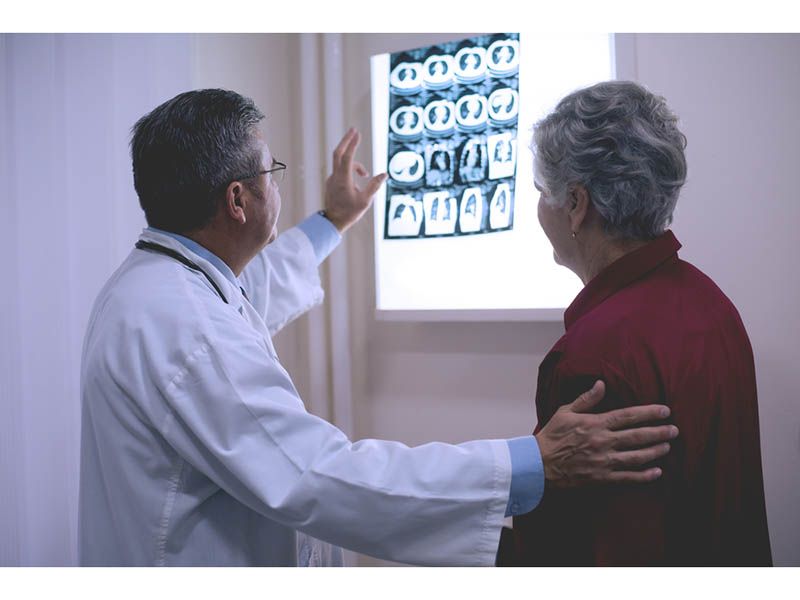MONDAY, Feb. 1, 2021 (HealthDay News) — Women with type 2 diabetes may be more likely to develop breast cancer, but taking the diabetes drug metformin appears to reduce their risk for the most common type, new research finds.
Compared to women without diabetes, risk for estrogen-positive breast cancer was 38% lower among women with type 2 diabetes who had used metformin for 10 years or more.
Metformin did not protect against estrogen receptor-negative breast cancer and may increase risk for triple-negative breast cancers, the study found.
“Women with type 2 diabetes and their doctors should consider whether their type 2 diabetes diagnosis and treatment should influence how frequently they are screened for breast cancer,” said study author Dale Sandler, chief of the epidemiology branch at the U.S. National Institute of Environmental Health Sciences in Research Triangle Park, N.C.
In diabetes, metformin reduces blood sugar (glucose) levels by decreasing the amount of glucose produced in the liver. Exactly how this drug may protect women with diabetes from breast cancer is less clear.
“Metformin can improve insulin sensitivity and correct high insulin levels by reducing the amount of insulin and insulin-like growth factor circulating in the body, which may activate cell signals involved in cancer,” Sandler said.
Metformin may also slow breast cancer growth by activating an enzyme called adenosine monophosphate activated protein kinase (AMPK), she said. It blocks a pathway involved in spread of cancer cells.
Or, Sandler said, metformin may inhibit estrogen receptors that play a role in the development and progression of breast cancer.
The new study included more than 44,000 women who were followed for more than eight years. They ranged from 35 to 74 years of age.
Though they had never been diagnosed with breast cancer when the study began, they were sisters or half-sisters of women diagnosed with breast cancer. Participants completed questionnaires every three years.
While women with type 2 diabetes who took metformin were protected against estrogen receptor-positive breast cancer, they had a 74% higher risk of developing triple-negative breast cancer, the study found. Only a handful of participants developed this type of breast cancer, so it is too early to jump to any conclusions, researchers said.
More study is needed to better understand whether there is a cause-effect relationship between metformin and cancer or whether the increased risk owes to an absence of protection from metformin, Sandler said.
The findings were published Jan. 29 in the Annals of Oncology.
Metformin has been hailed as something of a miracle for many diseases other than diabetes. Some research has linked it to a longer life span, reduced risk of vision loss and improved fertility in men and women.
The new study does not suggest that women without diabetes should take metformin to reduce breast cancer risk, said Dr. Pamela Goodwin, co-author of an editorial that accompanied the study. She’s a professor of medicine at the University of Toronto and former director of the Marvelle Koffler Breast Centre at Toronto’s Mount Sinai Hospital.
More research is needed to fully understand the link between diabetes and breast cancer and clarify what role metformin may play, Goodwin said.
Losing weight and engaging in regular physical activity can help lower diabetes risk, she said, adding this may have spillover benefits for breast cancer risk as well.
“If you have type 2 diabetes, get properly treated and in many cases, this means taking metformin. Make sure to get regular mammograms, too,” Goodwin said.
Dr. Sarah Cate, director of the special surveillance and breast program at the Blavatnik Family-Chelsea Medical Center at Mount Sinai in New York City, reviewed the findings.
“Certainly, metformin helps with weight loss, which is linked with estrogen-driven breast cancers, so this may explain why fewer patients on metformin got this type of breast cancer,” she said.
Both Cate and Goodwin noted that the finding on triple-negative breast cancer needs to be fleshed out.
“The number of patients who were found to have triple-negative breast cancer was small, so we cannot draw any practice-changing conclusions from it,” Cate said.
More information
Breastcancer.org offers more information on risk factors for breast cancer.
SOURCES: Dale Sandler, PhD, chief, Epidemiology Branch, U.S. National Institute of Environmental Health Sciences, Research Triangle Park, N.C.; Pamela Goodwin, MD, MSc, professor, medicine, University of Toronto, and former director, Marvelle Koffler Breast Centre, Mount Sinai Hospital, Toronto; Sarah Cate, MD, assistant professor, surgery, Icahn School of Medicine, Mount Sinai, New York City, and director, special surveillance and breast program, Blavatnik Family-Chelsea Medical Center, Mount Sinai, New York City; Annals of Oncology, Jan. 29, 2021
Copyright © 2026 HealthDay. All rights reserved.

